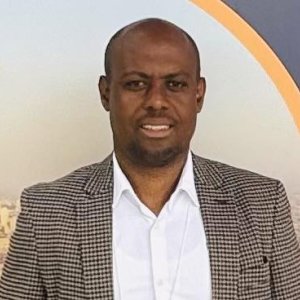I am a Research Fellow (Mathematical Modeller) on the REACH project within the Department of Global Health and Development, Faculty of Public Health and Policy, at the London School of Hygiene & Tropical Medicine. The REACH project focuses on building resilience to floods and heat in Brazil and Zambia's maternal and child health systems.
With over 10 years of experience in hydrology, hydrodynamics, statistical hydrology, meteorology, climate science, and quantitative water resource management, my work centres on understanding the impacts of climate change on water systems and developing solutions to mitigate the effects of multi-hazard natural disasters, including floods, droughts, and heatwaves. I hold a PhD in hydrology and hydrodynamics, complemented by studies in meteorology, which provide a robust foundation in weather patterns and water systems.
My expertise includes applying advanced computational or mathematical models and data science tools to analyse hydrological, climate, and weather data. I leverage these skills to develop nature-based solutions (NbS) that utilize natural ecosystems, such as wetlands and forests, to manage water resources and safeguard communities from extreme weather events. I have contributed to several high-impact research projects, including the OPERANDUM project, which developed NbS to address multiple natural hazards across Europe, such as flooding, droughts, heatwaves, landslides, coastal erosion, storm surges, seawater intrusion, and soil erosion. Additionally, I led the LivGBGI project, which examined how green and blue infrastructure in urban settings can mitigate climate hazards like heatwaves, floods, and droughts, while also addressing noise pollution. In the RECLAIM Network Plus, we worked on transforming neglected urban areas into climate-resilient spaces through NbS.
In addition to research, I teach courses in water resource management, hydraulic modelling, agro-meteorology, irrigated land hydrology, and engineering hydrology. I have authored approximately 30 research papers and regularly present at international conferences. I am deeply committed to advancing sustainable, nature-based approaches to address the growing challenges posed by climate change on human health and the environment, and I aim to continue contributing to this field through both research and education.
Affiliations
Teaching
I have over five years of teaching experience and have served as an invited lecturer in the Department of Civil and Environmental Engineering at the University of Surrey. I teach Water Resources Management and Hydraulic Modelling to MEng and MSc students, where I develop course materials, deliver lectures, and lead practical lab sessions. My lab sessions emphasize hands-on hydraulic modelling, using tools like HEC-RAS for flood risk evaluation, and incorporating natural flood management strategies. I take pride in engaging students in both theoretical and practical learning, ensuring they acquire real-world skills, and I have consistently received positive feedback that surpasses departmental averages.
Before this, I taught at Arba Minch University in Ethiopia, where I designed and delivered hydrology and meteorology courses to large classes of over 80 students. During my time there, I revised the B.Sc. curriculum for Meteorology and Hydrology, mentored 16 undergraduate students in thesis writing, and served as a research coordinator. I am passionate about creating a collaborative and engaging learning environment where students can connect theoretical knowledge with practical applications. I also enjoy mentoring students at all levels, from undergraduates to PhD candidates, helping them navigate their academic journeys and research projects.
My teaching philosophy revolves around empowering and motivating students to develop their intellectual interests, foster a community-oriented mindset, and enhance their critical thinking skills. I aim to equip them with the technical expertise and problem-solving abilities needed to address complex challenges in water resource management, as well as climate change adaptation and mitigation.
Research
My career objective is to lead research in nature-based solutions (NbS), hydrology, hydrodynamics, climate change, and multi-hazard risk assessment, as well as real-time prediction for mitigating climate-related risks. I aim to achieve this by utilizing advanced data science techniques, including AI and machine learning, particularly deep learning, to integrate climate data with hydrological and hydraulic modelling, alongside remote sensing technologies. My key research interests include:
- Investigating and developing innovative NbS for natural hazard management, including scaling solutions and evaluating associated trade-offs
- Designing tools, approaches, and frameworks to demonstrate how NbS can mitigate climate-induced hazards.
- Advancing the frequency analysis of climate extremes with a focus on multi-hazard and multidimensional risk assessments.
- Conducting groundwater and surface water flow modelling in the context of climate change.
- Applying artificial intelligence in data science to assess the impact of climate change on hydrology and water resources.
- Integrating machine learning and hydrodynamic modelling to address flood risk and optimize interventions.
- Applying Monte Carlo-based uncertainty analysis in hydraulic design and quantile estimation under changing climatic conditions.
